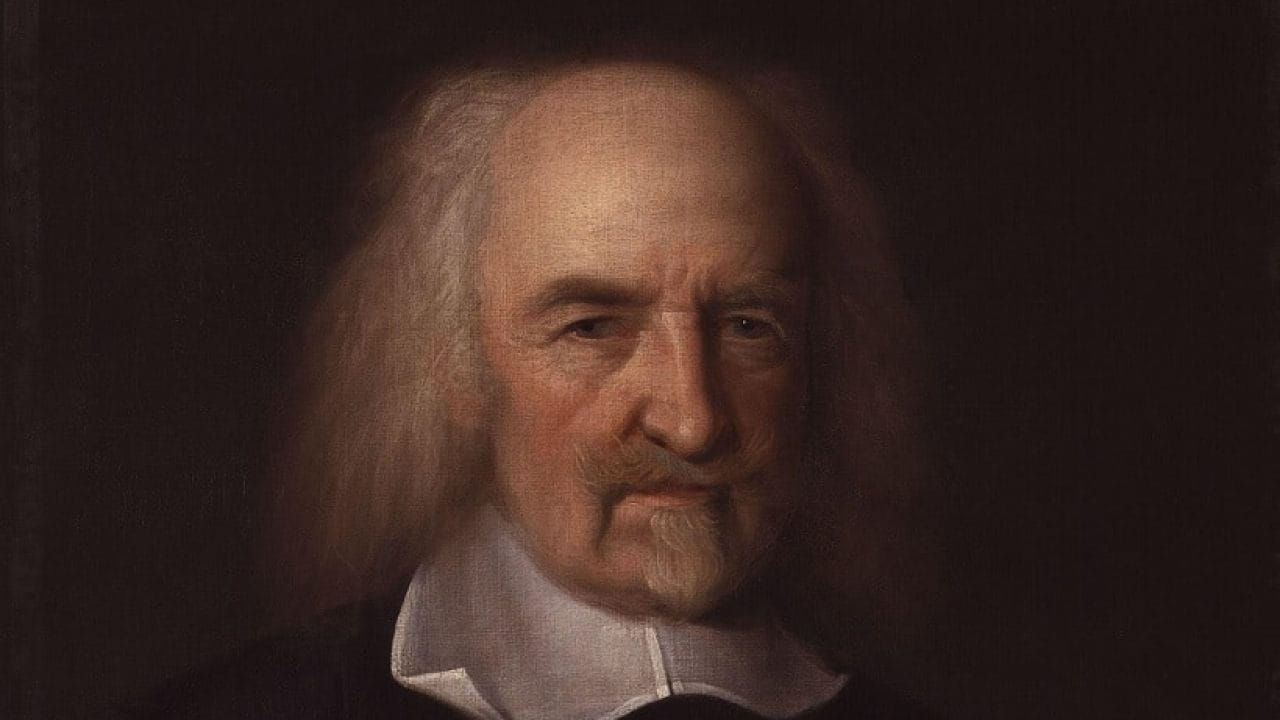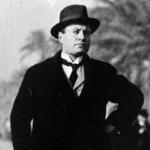Hey there, knowledge seekers! Let’s dive into the surprising life and philosophy of Thomas Hobbes, a thinker whose ideas still pack a punch today. We’re not just gonna bore you with dry facts; we’re going to uncover the unexpected, the quirky, and the downright intriguing details that shaped this philosophical giant. Hold on tight, readers, because it’s about to get mind-blowing!
Surprising Facts About Thomas Hobbes
Thomas Hobbes, the prominent thinker of the 16th and 17th centuries, is renowned for his influential ideas about government and human nature. But there’s more to him than meets the eye! Let’s uncover some captivating tidbits you probably didn’t know about this influential philosopher:
- Born Out of Fear: Imagine being born prematurely because your mom was terrified of a massive invasion! That’s precisely what happened to Hobbes. His mother went into early labor in 1588, spooked by the impending arrival of the Spanish Armada. This chaotic start to life might have sparked Hobbes’s lifelong fascination with security and stability, suggesting a possible link between early experiences and one’s worldview.
- A Childhood Marked by Absence: Life dealt young Thomas a tough hand when his father, a clergyman, got caught up in a brawl and had to flee London. Abandonment can leave a deep mark, and for Hobbes, it likely fueled his explorations of loneliness, the need for social order, and the importance of a strong governing power.
- The Rebel Thinker: Hobbes wasn’t afraid to stir the pot with his bold ideas, especially when it came to religion and politics. He ruffled feathers with his concept of the “social contract,” claiming that people willingly give up certain freedoms to a ruler in exchange for protection and a more stable society. This theory, while debated even today, became a cornerstone of modern political thought, influencing how we think about the relationship between citizens and their governments.
- A Foundation Shaker: Imagine challenging the very core of how people see the world – that’s what Hobbes did! He championed a way of thinking called “empiricism,” believing that knowledge comes primarily from our senses and experiences, not just innate ideas. This put him at odds with popular philosophical views of his time, like those of Aristotle. Hobbes dared to question established norms, paving the way for new avenues of thought.
- Beyond the Books: There’s a whimsical side to Hobbes that often gets overlooked! He was passionate about translating ancient Greek classics, particularly Homer’s epic poems, The Iliad and The Odyssey. Some scholars suggest this fascination with epic narratives might have influenced his own writing style, known for its dramatic flair and vivid imagery.
These are just a few glimpses into the fascinating and complex life of Thomas Hobbes. His experiences, both personal and intellectual, shaped his groundbreaking philosophies, leaving an undeniable mark on Western thought. As we delve deeper into the history of ideas, we begin to see that even the most influential thinkers were real people with captivating stories to tell.
To enter the world of Jazz music, check out these facts about Harry James. Don’t miss out on the facts about Cheng Lei, a Chinese- Australian television anchor known for her critical coverage of China. And, for an enthralling read, immerse yourself in the astounding facts about Marc Clotet, the Spanish actor known for his diverse roles.
What 3 Things Did Thomas Hobbes Believe In?
Thomas Hobbes dedicated his life to understanding how humans behave and how societies function. Hobbes’s viewpoint wasn’t exactly known for being optimistic. In reality, his outlook on human nature was rather pessimistic. Here’s a breakdown of his core beliefs:
- We’re all a bit selfish (to put it mildly). Hobbes believed that at their core, humans are hardwired to prioritize their own needs. He theorized that we’re driven by a relentless pursuit of things like power, possessions, and anything else we desire. And because everyone is constantly craving the same things, conflict becomes inevitable. Hobbes envisioned a world without rules as a “war of all against all,” a scenario where everyone fends for themselves, resulting in chaos and suffering.
- We need a strong leader to keep us in line. Given that Hobbes believed humans are naturally inclined to act in their self-interest, often at the expense of others, he proposed a solution: a powerful central authority figure, like a king or a government, to establish and enforce laws. He called this agreement to relinquish some personal freedom in exchange for security the “social contract.” Essentially, individuals would be willingly trading a degree of autonomy for the collective good of safety and societal order.
- No ifs, ands, or buts about it, the leader’s word is law. This is where Hobbes’s ideas might seem a bit more controversial. He wasn’t merely suggesting a strong leader; he advocated for a leader with absolute power. Hobbes argued that any attempt to limit or divide that power, such as implementing checks and balances, would inherently weaken the system and potentially lead to chaos. He believed that granting people the freedom to question authority would undermine the very foundation of a stable society.
It’s important to acknowledge that these are just Hobbes’s interpretations of how things work, and they have fueled countless debates and discussions over time. Some individuals and scholars believe his view of human nature was overly pessimistic, while others point to real-world examples to support his ideas. It’s a complex issue with no easy answers, and varying perspectives continue to analyze and interpret his work.
The significance of Hobbes’s ideas, regardless of whether one agrees with them or not, lies in their impact on how government, power, and the individual’s role in society are perceived. He encouraged critical thinking about the balance between freedom and security, a topic that remains relevant and debated today.
What is Thomas Hobbes Most Well Known For?
Let’s delve into some of the prominent ideas that propelled Thomas Hobbes to fame.
Picture a world devoid of rules, leaders, and cooperation, where individuals are left to their own devices. Hobbes called this the state of nature, and he believed it would be a dreadful existence. He envisioned people constantly clashing, driven by fear and insecurity, making it impossible to achieve true peace or well-being.
So, according to Hobbes, what’s the solution to escaping this dreadful state of nature? He proposed that people enter into a social contract. In this agreement, individuals consent to relinquish some of their freedom and autonomy, placing themselves under the rule of a sovereign power—a king or a government. In exchange for this sacrifice, the sovereign is responsible for providing protection, upholding laws, and maintaining order. Essentially, it’s a trade-off: surrendering some individual liberty in exchange for collective security and societal stability.
Hobbes compared this powerful entity that emerges from the social contract to a massive sea monster, the Leviathan. This monster symbolizes the all-powerful state, responsible for safeguarding its citizens and preventing the descent into chaos.
It’s worth noting that Hobbes wasn’t exactly known for his gentle approach. He firmly believed that the most effective way to govern was through a single ruler wielding absolute power—an absolute monarchy. He believed that a strong, unquestionable authority was essential in deterring dissent and maintaining order.
Why did Hobbes hold such a strong belief in absolute power? His perspective stemmed from a rather dim view of human nature. He believed people were inherently selfish, power-hungry, and prone to conflict. Without a firm hand to guide and control them, he feared society would crumble.
Of course, Hobbes’s ideas weren’t universally accepted. Even today, his theories spark debate and discussion. Some argue that his views on human nature were overly pessimistic, believing that humans are capable of greater good than he acknowledged. Others contend that his observations about the need for rules and structures resonate with real-world examples, suggesting that societal order often requires some level of control to curb our less desirable instincts.
The enduring fascination with Hobbes’s ideas lies in their ability to make us question our assumptions. He challenged people to consider the trade-offs between freedom and security, the role of government, and the nature of power. His work laid the foundation for centuries of debate about politics, governance, and the human condition, making him a truly influential figure in the history of political thought.
What Did Thomas Hobbes Struggle With?
Thomas Hobbes’s life was not a walk in the park. His experiences, often fraught with challenges, directly shaped his perspective on the world, influencing his theories about human behavior and the need for strong governance. Imagine being caught between a rock and a hard place—that was Hobbes, constantly navigating difficult situations that offered a glimpse into the complexities of the human experience.
One significant point of contention for Hobbes was religion, particularly the Roman Catholic Church. His disagreements with their doctrines put him at odds with the English monarchy, which wasn’t exactly conducive to a peaceful life. On top of that, his political views often challenged the status quo, making him a target of criticism and even forcing him to seek refuge in France at one point. Talk about adding fuel to the fire!
But Hobbes’s struggles extended beyond external conflicts. He grappled with a deep-seated fear of chaos stemming from his understanding of human nature. He believed that if people were left to their own devices without rules or a strong governing force, society would devolve into a state of perpetual conflict—a chilling concept he referred to as the “war of all against all.” This fear, perhaps more than anything, fueled his belief in the absolute necessity of a powerful ruler capable of maintaining order.
As if political and philosophical battles weren’t enough, Hobbes also endured a lifetime of health issues. Imagine suffering from epilepsy and excruciating kidney stones in a time before modern medicine! These experiences likely contributed to his rather pessimistic view of the human condition as inherently fragile and susceptible to suffering.
Adding to his difficulties, Hobbes struggled to form lasting relationships, even with those who shared his intellectual interests. His direct and uncompromising personality often created friction, likely contributing to a sense of isolation. This social isolation may have further intensified his focus on the individual’s need for security and control in a world that could often feel unpredictable and chaotic.
Even within academia, an environment intended to foster diverse thought and intellectual exploration, Hobbes faced resistance. His radical ideas and confrontational approach positioned him as an outsider, often met with criticism rather than open dialogue. This experience likely solidified his conviction that strong leadership was not only desirable but essential in preventing society from descending into intellectual and social anarchy.
Reflecting on Hobbes’s Struggles:
Understanding that personal experiences often mold a thinker’s worldview is crucial. Hobbes’s encounters with religious and political clashes, his anxieties about societal breakdown, his battles with illness, and his struggles with social and intellectual isolation all contributed to the development of his ideas.
While we may not agree with all his conclusions, recognizing his context allows for a more nuanced understanding of his thinking. It reminds us that philosophy doesn’t emerge in a vacuum but is often forged in the crucible of lived experiences, shaped by both personal challenges and intellectual pursuits.
Did Thomas Hobbes Have Kids?
While we’ve been delving into the intricacies of Thomas Hobbes’s life, one question remains a bit of a historical mystery: did he ever have children?
The truth is, the historical records from that era aren’t always comprehensive, and details about the personal lives of individuals like Hobbes are often scarce. We know for certain that he never married. While some historians believe this makes it less likely he had children, it’s not impossible, considering the social norms and complexities of life during that time.
What adds another layer to this question is how Hobbes viewed children and their place in society. If you recall his concept of the “state of nature,” where life is a constant power struggle, he extended that idea to family dynamics as well. He believed parents held absolute authority over their children, much like rulers governing their subjects. This perspective prompts questions about whether his own upbringing, marked by an absent father, might have influenced these beliefs.
Although we may never definitively know if Hobbes had children, exploring this question highlights the gaps in our understanding of his personal life. It prompts us to consider how his personal experiences might intersect with his philosophical ideas, reminding us that even the most renowned thinkers had lives beyond their published works—lives filled with everyday experiences, joys, and challenges that we might never fully grasp.
What are 5 Facts about Thomas Hobbes?
Let’s uncover some intriguing facets of Thomas Hobbes’s life and work. You might already know he was a prominent figure in philosophy, but here are five facts that might surprise you:
- He wasn’t just about strict rules. It’s easy to perceive Hobbes as an advocate for authoritarian rule due to his emphasis on a strong government. While it’s true that he believed a powerful governing body was essential, his vision wasn’t about a tyrannical king controlling every aspect of people’s lives. Hobbes placed considerable value on individual liberty within the framework of a well-structured government. He believed that if people willingly relinquished certain freedoms for the sake of security, they should still enjoy a significant degree of autonomy in their personal lives.
- His take on human nature was…complicated. Hobbes wasn’t exactly known for his optimistic outlook on humanity. He believed that in the absence of societal structures and rules, people would be driven by their desires and fears, leading to competition and conflict. He coined the term “state of nature” to describe this scenario, depicting a rather bleak picture where life would be “solitary, poor, nasty, brutish, and short.” It’s important to note that Hobbes wasn’t necessarily saying humans were innately evil but rather that our natural instincts, if unchecked, could have destructive consequences. He saw government as a necessary force to mitigate these potentially harmful impulses.
- His background was anything but ordinary. Born during a time of significant political upheaval in England, Hobbes’s life was directly impacted by the turmoil of the English Civil War. Experiencing such unrest likely shaped his views on power, order, and the importance of a strong sovereign capable of maintaining stability. It raises intriguing questions about whether his theories might have differed had he lived in a more peaceful era. This highlights how a thinker’s social and political environment can profoundly impact their worldview and the ideas they develop.
- He wasn’t just a one-trick pony. While Hobbes is primarily known for his contributions to political philosophy, particularly his masterpiece Leviathan, his intellectual curiosity extended far beyond the realm of government and power. He was a true polymath, exploring fields like mathematics, physics, and even psychology. He dedicated himself to translating ancient Greek texts, engaged in passionate debates about religious freedom, and delved into concepts of human perception and motivation. This makes him an incredibly fascinating figure to study, as his thinking in one area often intertwined with and informed his ideas in other disciplines.
- His legacy is still debated today. Hobbes remains a controversial figure in the world of philosophy. Some praise his insights into human nature and his contributions to our understanding of political order, while others criticize aspects of his work as potentially promoting authoritarianism. Some scholars believe his ideas, particularly his focus on self-interest as a driving force, anticipated modern economic and political systems. Others caution against interpreting his work through a purely contemporary lens, emphasizing the importance of considering the historical context in which he wrote. This ongoing debate surrounding his work is a testament to the enduring relevance and complexity of his ideas, solidifying his place as a critical figure in the history of Western philosophy.
So there you have it—five insights into the life and work of Thomas Hobbes, a man far more nuanced than his reputation might initially suggest. His ideas continue to spark discourse, challenge assumptions, and inspire new avenues of inquiry, reminding us that even centuries-old philosophies can offer valuable insights into understanding ourselves and the world we inhabit.
What Was Thomas Hobbes’ Greatest Achievement?
Thomas Hobbes, the English philosopher who shook things up back in the 1600s, is best known for his revolutionary ideas about politics and the best way to structure a functioning society. He wasn’t afraid to challenge conventional thinking, especially when it came to understanding human nature and how power dynamics play out in the absence of strong governance.
One of his most impactful contributions was his theory about human motivation: the idea that, at our core, humans are innately self-serving and constantly looking out for number one. He believed that without some form of control or authority, we’d be perpetually at odds with one another, driven by our desires and vying for resources in a chaotic free-for-all that he referred to as the “state of nature.”
This leads us to what many consider Hobbes’s most significant achievement: the social contract theory. Imagine a group of individuals realizing that this whole “every man for himself” approach isn’t sustainable. In a moment of collective realization, they decide to make a pact—a social contract—agreeing to relinquish a degree of their individual freedom and submit to the authority of a ruler. In exchange, this ruler, or governing body, is entrusted with ensuring protection, upholding laws, and maintaining a stable and orderly society. It’s essentially a trade-off: sacrificing some personal liberty for the collective good of security and stability.
Hobbes brilliantly articulated this concept of the social contract in his masterpiece, Leviathan. In this influential work, he argues that a powerful, centralized government—the Leviathan—is the only effective means of maintaining order and preventing society from descending into chaos. This idea of a formidable sovereign power might seem extreme to some. Still, it highlights Hobbes’s core belief: that a firm hand is necessary to curb humanity’s self-serving instincts and create the conditions for a functional society.
It’s precisely this line of thinking that makes Hobbes’s work so fascinating and enduringly relevant. His ideas triggered a wave of debate and discussion among other influential thinkers like Locke, Rousseau, and Kant. Even centuries later, we continue to grapple with the fundamental questions he raised: What is the ideal balance between individual freedom and collective security? How much power should we entrust to those in positions of authority? These are complex questions without easy answers, and that’s precisely why Hobbes’s work continues to resonate and challenge us.
His true legacy lies not in providing definitive solutions but in compelling us to think critically about the very structures that underpin society. His insights into human behavior, power dynamics, and the delicate interplay between order and freedom remain surprisingly applicable to the complex issues we face in the world today. In that sense, Thomas Hobbes has undoubtedly left an enduring mark on the world of political thought.
What Did Hobbes Consider the Three Main?
Thomas Hobbes wasn’t exactly known for sugarcoating his views. He had a rather bleak outlook on human nature, believing that without structure, rules, and a strong governing force, we’d be inclined toward conflict and chaos. This brings us to three of his most fundamental ideas about human beings and the need for order:
- We’re Wired for Conflict (According to Hobbes): Hobbes’s argument stemmed from the belief that, at our core, humans are inherently selfish. He argued that without rules and a system of enforcement, we would be constantly at odds with one another, driven by a desire for resources, power, or anything else we perceived as beneficial. He envisioned a world without government as a terrifying free-for-all, where constant competition and self-preservation would be the driving forces of human interaction.
- The Social Contract: Our Deal with Authority: To avoid this perpetual “state of war” that he believed was humanity’s natural inclination, Hobbes proposed the concept of a “social contract.” This idea suggests that individuals, recognizing the dangers of unchecked self-interest, willingly choose to surrender a portion of their individual freedom to a higher authority, which he referred to as the Leviathan. In exchange for this sacrifice, the Leviathan, or the state, assumes the responsibility of creating and upholding laws, maintaining order, and ensuring the protection of its citizens.
- Meet the Leviathan: Not Your Average Ruler: Where Hobbes’s ideas take a more controversial turn is in his belief about the nature of this “Leviathan.” He didn’t just advocate for any form of governance; he proposed that the Leviathan should possess absolute authority. He believed that a single, all-powerful entity, in control of everything from lawmaking to religious doctrine, was the only way to truly prevent society from collapsing into chaos and anarchy. This vision of a centralized and absolute power structure is what often sparks debate and raises questions even today.
Points to Consider:
It’s essential to remember that these are just a few of Hobbes’s core ideas, and they have been the subject of much discussion and debate among scholars for centuries. Some argue that his view of human nature might have been overly pessimistic. At the same time, others suggest that his concept of an all-powerful Leviathan raises concerns about the potential for tyranny and the suppression of individual liberties. These ongoing debates are a testament to the enduring influence of Hobbes’s ideas.
The value in studying Hobbes lies in his ability to make us examine our assumptions about power, government, and the balance between individual freedom and collective security. His work continues to be relevant as we grapple with questions about how to create just and equitable societies in an increasingly complex world.
What are Hobbes’ Three Laws of Nature?
We’ve established that Thomas Hobbes didn’t have the most optimistic view of human nature. He believed that left to our own devices, humans would prioritize self-preservation and engage in a ruthless pursuit of their own desires, even at the expense of others. This is where his concept of the laws of nature comes into play.
Hobbes essentially outlined a set of principles intended to prevent a complete societal meltdown. He called humanity’s natural state, in the absence of rules or agreements, the “state of nature,” and he believed it would be a brutal and chaotic existence. To avoid this undesirable outcome, he proposed three fundamental laws that should guide human behavior:
- Seek Peace: This first law is relatively straightforward. Hobbes believed that deep down, regardless of our inherent selfishness, all individuals desire peace. This desire stems from a simple fact: living in a constant state of fear and violence is not conducive to well-being. Therefore, seeking peace is not just a moral imperative but a logical one for self-preservation.
- Keep Your Promises: Imagine a society where agreements hold no weight, and people break their word without consequence. Hobbes believed such a scenario would lead to chaos and distrust, undermining any possibility of cooperation or collective progress. He argued that honoring agreements and keeping promises are essential for establishing trust and maintaining order within any social structure.
- Let Bygones Be Bygones: Holding onto grudges and seeking revenge might provide a fleeting sense of satisfaction, but Hobbes recognized that it ultimately perpetuates cycles of conflict. He understood that forgiveness, while often challenging, is crucial for breaking free from these cycles and fostering a more harmonious environment. Letting go of past grievances, in his view, is essential for creating a more peaceful and cooperative society.
Here’s the catch: Hobbes didn’t believe that simply stating these laws would magically make them a reality. He argued that a more robust mechanism was needed, a higher power responsible for ensuring compliance. This is where his concept of the “social contract,” which we discussed earlier, becomes essential.
The social contract, in essence, suggests that people willingly agree to give up a portion of their autonomy and submit to the authority of a ruler or a governing body. This authority is then entrusted with enforcing the laws of nature, ensuring that individuals abide by the principles of peace, contract-keeping, and forgiveness. In Hobbes’s view, this was the only way to create a society where individuals could coexist without constantly fearing violence or betrayal.
In a nutshell:
- Hobbes’s laws of nature offer a framework for peaceful coexistence. They highlight the fundamental principles necessary for building a society where people can thrive without constantly looking over their shoulders.
- Seeking peace, honoring agreements, and practicing forgiveness are more than just virtuous acts; according to Hobbes, they are the cornerstones of a functional, healthy, and prosperous society.
- These laws, however, are not self-executing. They require a strong governing force to provide structure, ensure accountability, and create an environment where individuals feel incentivized to act in accordance with these principles for the collective good.
What Are the Three Key Hobbesian Themes?
Let’s delve into the core of Hobbes’s thinking by exploring the interconnected themes that underpin his philosophical perspective. He had strong convictions about human nature, the role of government, and what he believed to be the necessary conditions for creating a stable and flourishing society.
1. Human Nature and Self-Interest: Hobbes’s starting point was a belief that, at their core, humans are driven by self-interest. He didn’t necessarily see this as a negative quality but rather an inherent aspect of the human condition. He argued that in the absence of rules or a strong governing force, individuals would act primarily to secure their own well-being, even if it meant infringing on the well-being of others. This focus on self-preservation as the primary human motivator informed his entire worldview.
2. The State of Nature: A Recipe for Chaos? To illustrate the potential consequences of unchecked self-interest, Hobbes introduced the concept of the “state of nature.” This thought experiment asked us to imagine a world without laws, government, or any externally imposed moral framework. In this hypothetical scenario, Hobbes envisioned life as a constant struggle for survival, a brutal and chaotic existence where individuals operate out of fear, suspicion, and a constant need to secure resources and protect themselves from potential threats.
3. The Social Contract: Our Escape from Anarchy: So how do we avoid this bleak picture painted by the “state of nature”? This is where Hobbes’s concept of the social contract takes center stage. He argued that rational individuals, driven by a desire to escape the dangers of the “state of nature,” would willingly choose to enter into a contract with one another. This social contract involves relinquishing a degree of personal freedom and submitting to the authority of a sovereign power. In exchange for this sacrifice, the sovereign is entrusted with establishing laws, maintaining order, and ensuring the protection of its citizens.
It’s important to note that not everyone agrees with Hobbes’s ideas. Some argue that his view of human nature is overly pessimistic and that humans are capable of far greater cooperation and altruism than he acknowledges. However, even those who disagree with him recognize the value of his work in prompting essential conversations about the role of government, the limits of individual freedom, and what it truly means to live in a society.
The enduring relevance of Hobbes’s ideas lies in their ability to challenge assumptions and spark debate. His work continues to be discussed and analyzed by philosophers, political scientists, and everyday citizens alike, proving that even centuries-old ideas can still resonate and offer valuable insights into the complexities of human behavior and social dynamics.
What Are Three Words to Describe Thomas Hobbes?
Capturing the essence of a complex thinker like Thomas Hobbes in just three words is challenging, but let’s give it a try!
1. “Materialist”: This term reflects Hobbes’s belief that the universe, including humans and their thoughts, is fundamentally composed of matter and energy. He rejected the idea of a separate realm of spiritual or supernatural forces, focusing instead on understanding the world through observable phenomena. This materialist viewpoint heavily influenced his ideas about human behavior, morality, and the nature of reality itself.
2. “Empiricist”: Hobbes believed that knowledge is primarily derived from sensory experiences and observations of the world around us. He emphasized the importance of evidence and experimentation, advocating for a rational and scientific approach to understanding the world. Rather than relying on abstract reasoning or inherited traditions, he believed true knowledge stemmed from carefully examining the world through our senses and drawing conclusions based on empirical evidence.
3. “Absolutist”: This term, often debated and sometimes criticized, reflects Hobbes’s firm belief in the necessity of a strong, centralized authority. Having lived through periods of political turmoil and social unrest, he concluded that an absolute sovereign—a ruler with unquestionable power—was essential for maintaining order and preventing society from descending into chaos. This absolutist stance, while controversial, stemmed from his deep-seated conviction that human nature, left unchecked, would inevitably lead to conflict and disintegration.
Hobbes in a Nutshell:
- Humans are wired for self-preservation. He believed our most basic instinct is to survive, and this drive can lead to ruthless competition and conflict if not carefully managed.
- Without rules, life is a free-for-all. He envisioned a “state of nature” without laws, a terrifying scenario where constant fear, violence, and self-interest reign supreme.
- We make a deal with the ruler. To escape the horrors of this “state of nature,” Hobbes argued that individuals willingly agree to relinquish some freedom by submitting to a more powerful entity capable of imposing order and ensuring security.
Remember, these are simplified explanations of complex ideas that continue to be debated and analyzed. However, they provide a starting point for understanding this influential thinker and why his ideas still spark debate and discussion today.
















